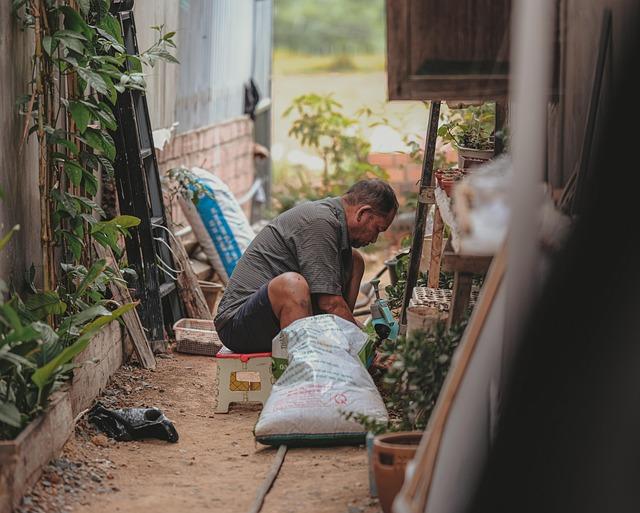In a dramatic turn of events, Father Damulak, a Catholic priest abducted in Nigeria on February 6, has managed to escape from his captors, bringing a glimmer of hope amid the ongoing crisis of kidnappings in the region. His release comes amidst rising concerns over security and the safety of religious figures in a country grappling with violence and turmoil. This incident not only highlights the perilous situation faced by clergy in Nigeria but also underscores the broader issues of insecurity and lawlessness that plague the nation. In this article, we delve into the circumstances surrounding Father Damulak’s kidnapping, his escape, and the implications for religious communities in Nigeria’s increasingly volatile landscape.
Father damulak’s Abduction: An Overview of the Incident
The dramatic situation surrounding Father Damulak’s abduction on February 6 has captivated the attention of many communities across Nigeria and beyond. The incident took place in the early hours when a group of armed men stormed his residence, seizing him from his home in a rural parish. Witnesses described the atmosphere as chaotic, marked by the sounds of gunfire and the cries of frightened family and community members. Following his abduction, it was reported that the kidnappers demanded a hefty ransom, a common tactic employed in such criminal acts, which has become increasingly prevalent in various regions of the country. Many local religious and civic leaders condemned the act, calling for immediate action to secure Father Damulak’s release.
After enduring a harrowing experience, Father damulak managed to escape his captors shortly after his abduction, a feat that many are describing as miraculous. His escape involved a series of courageous decisions and moments of ingenuity that enabled him to break free from the clutches of his kidnappers. He later recounted the ordeal to his congregation, detailing the oppressive conditions and threats he faced during his confinement.As a community, many have expressed profound relief and gratitude for his safe return. The aftermath of the incident has sparked discussions about the ongoing issues of security and safety in Nigeria, prompting calls for governmental and law enforcement reforms to address the underlying factors contributing to such criminal activities.

The Context of Kidnapping in Nigeria: A Growing Crisis
The alarming trend of kidnapping in Nigeria has escalated into a important humanitarian crisis,affecting not only local communities but also capturing the attention of international observers. The recently reported kidnapping of Father Damulak highlights the perils faced by religious leaders and ordinary citizens alike. In a climate where armed groups, often driven by financial gain, have taken to abducting individuals for ransom, there is a palpable sense of fear that permeates daily life. This crisis underscores the need for a multifaceted approach involving stricter law enforcement, community resilience building, and international cooperation.
Understanding the context of this growing menace reveals a complex web of socio-economic, political, and cultural factors. The increasing frequency of such incidents can be attributed to:
- Economic Disparities: High levels of poverty and unemployment drive individuals toward crime.
- Political Instability: Weak governance and corruption hinder effective policing and justice.
- Social Inequality: Marginalized communities face heightened vulnerabilities.
As Nigeria grapples with these challenges, the striking case of Father Damulak serves as a grim reminder of the realities faced by many, necessitating urgent dialog and action from all stakeholders involved.

The Aftermath of Father Damulak’s Escape: Reactions and Reflections
The recent escape of father Damulak from captivity has sparked a multitude of reactions across various sectors in Nigeria and beyond. Many have expressed relief and gratitude for his safe return. Community leaders and parishioners have held prayer vigils, reflecting their faith and resilience through difficult times. social media platforms have been flooded with messages celebrating his courage, sharing stories of hope and strength, and condemning the violence that led to his kidnapping. Key sentiments include:
- Overwhelming Joy: A feeling of happiness that a beloved figure has been returned to safety.
- Calls for Action: A heightened demand for improved security measures to protect religious leaders and their communities.
- Reflections on Vulnerability: A recognition of the persistent dangers faced by clergy in regions plagued by violence.
On the other hand, the aftermath of his escape has also prompted deeper conversations about the underlying issues contributing to such violent incidents. Analysts and commentators are emphasizing the urgency of addressing systemic problems such as poverty, lack of education, and religious intolerance. Discussions are surfacing regarding how communities can work together to not only ensure the safety of their spiritual leaders but also promote a culture of peace and understanding. Notable points of discussion are:
- Need for Dialogue: Advocating for collaboration between various community groups to foster mutual respect.
- Government Responsibility: Urging local authorities to enhance law enforcement patrolling in vulnerable areas.
- Long-Term Solutions: Suggesting educational initiatives to empower communities against extremism.

Community Response and Support: Mobilizing Action for Safer Environments
In the wake of Father Damulak’s harrowing escape from captivity,local communities have united to advocate for safer environments,reflecting a profound commitment to both security and solidarity.The urgency surrounding his abduction highlighted systemic vulnerabilities, prompting discussions on improving local law enforcement capabilities. Community leaders have initiated forums and rallies, bringing together residents, religious leaders, and civic organizations to address the growing concerns of safety and effective interaction with law enforcement agencies.
To mobilize action, various grassroots movements have emerged, emphasizing the importance of community engagement in safety protocols. These initiatives focus on:
- Education: informing community members about safety practices and available resources.
- Collaboration: Building partnerships with local authorities to ensure timely responses to threats.
- Support Networks: Establishing groups for victims and families affected by violence and abduction.
Through collective efforts, communities are not only responding to the immediate crisis of insecurity but also fostering a culture of resilience and proactive measures, ensuring that safety remains a priority for all.

Recommendations for Enhancing Security for Religious Leaders in Nigeria
Considering the alarming incidents of violence and abduction faced by religious leaders in Nigeria, several key measures can be implemented to enhance their security. Frist and foremost, it is crucial to establish stronger collaborations between religious institutions and local law enforcement. This partnership can help in forming a coordinated response strategy that includes regular meetings,crisis management workshops,and emergency response drills tailored to the unique context of religious gatherings.Additionally, community awareness and education campaigns can empower congregations to recognize suspicious activities, thereby fostering a proactive rather than reactive surroundings regarding safety.
Moreover, adopting innovative technology can also play a pivotal role in safeguarding religious leaders. Implementing surveillance systems and alarm systems in places of worship, along with training clergy in self-defense techniques, can significantly reduce vulnerability. The following initiatives could further bolster overall security:
- Encouraging religious leaders to conduct risk assessments of their facilities.
- Establishing secure communication channels for real-time reporting of threats.
- Creating a dedicated task force comprised of security experts and community members.
By not only prioritizing physical security measures, but also enhancing community engagement and response strategies, the safety of religious leaders in Nigeria can be substantially improved, fostering a more secure environment for worship and community life.

The Role of International Organizations in Addressing Kidnapping in Africa
International organizations play a crucial role in addressing the complex issue of kidnapping in Africa, particularly in regions like Nigeria where such incidents have become alarmingly frequent. These organizations engage in a variety of initiatives that focus on prevention, response, and recovery. They frequently enough collaborate with local governments and NGOs to enhance law enforcement capabilities, providing training and resources to ensure that local agencies are better equipped to handle kidnapping situations. Additionally, they promote awareness campaigns aimed at educating communities about safety measures and the importance of reporting suspicious activities.
Furthermore, international organizations work to strengthen regional cooperation among African nations. By promoting dialogue and information sharing, they help create a more unified response to transnational criminal networks that engage in kidnapping for ransom. Initiatives may include:
- capacity Building: Providing technical support and training for local law enforcement agencies.
- Policy Development: Assisting governments in developing comprehensive strategies to combat kidnapping.
- Advocacy: Championing human rights and urging governments to tackle the underlying causes of insecurity.
Moreover, international organizations often facilitate the establishment of frameworks for mutual legal assistance, making it easier for countries to cooperate in investigations and prosecutions. This integrated approach aims to significantly reduce incidents of kidnapping while ensuring that victims are prioritized in recovery efforts.

The Conclusion
Father Damulak’s escape marks a significant development in the ongoing challenges of safety and security faced by religious leaders in Nigeria. His release not only highlights the persistent threat of kidnapping in the region but also underscores the resilience of those who continue to advocate for peace and security in their communities. As the situation evolves,it remains crucial for local and international stakeholders to address the underlying issues contributing to this crisis,ensuring that similar incidents are prevented in the future. The hope is that Father Damulak’s story will serve as a catalyst for renewed efforts towards safeguarding not just religious figures, but all citizens in Nigeria from the scourge of abduction and violence.







